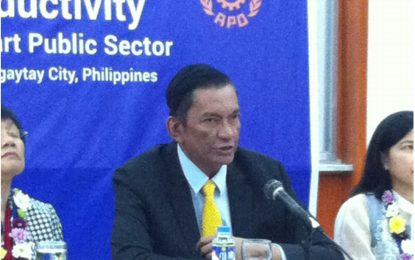
House Ways and Means Committee chairman Joey Salceda (File photo)
MANILA – The chairman of the House Ways and Means Committee is pushing for four reforms that will help encourage a “creative disruption” of the country’s banking sector.
In a report released on Monday, Albay Rep. Joey Salceda said comprehensive banking reforms are necessary to transform the highly traditional sector, which he described as “stable, but also deeply conservative”.
“While much of the banking sector has been content to preserve existing wealth, we aim to establish a policy environment that encourages the sector to create new wealth, among sectors of society that have the willingness, the industry, and the potential but not yet the capital to lift themselves out of poverty and stagnation,” Salceda said.
Part of the proposals is the Virtual Banking Act (HB 5913), which will encourage new virtual banking players and provide a framework that would encourage traditional players to participate.
Also included is the Financial Technology Industry Act (HB 7760), which pushes for the development of new financial technologies in the country.
The Blockchain Technology Development Act (HB 7864) will help encourage the study and application of distributed ledger technology, which could make services cheaper and more efficient.
The Fair and Inclusive Credit Reporting Act (HB 7863) seeks to promote credit transmission to previously underserved sectors, by encouraging the use of ‘big data’ to improve credit risk assessment and relationship management.
“Ultimately, these reforms will also strengthen the country’s central bank, as the fruits of these reforms will make monetary policy transmission more effective,” Salceda said.
He noted that the coronavirus disease (Covid-19) pandemic has exposed some of the risks of a very conservative banking sector, such as low monetary policy transmission, investment in inert but appreciating assets as opposed to high-risk but productive assets such as small businesses, decline in service quality and accessibility of traditional physical banking, among others.
“Many countries that are doing worse than us have seen better market returns and better loan growth. Low conversion of monetary policy into loans for the real economy is an unmistakable sign of structural flaws in our banking system,” he said.
Salceda cited the success of microfinance in developing countries as a model that the banking sector can learn from.
“Microfinance achieved much success in wealth creation. Access to capital is an important anti-poverty and economic growth measure. Add financial technology to the mix, and there is great potential in making credit more accessible,” Salceda said.
Salceda said the proposed reforms will ensure that, in the age of easy monetary policy, gains from the financial sector will also be shared with the most vulnerable and excluded segments of the real sector.
“The changes promoted by the reforms discussed are specifically geared towards making credit access and financial services fairer and more accessible. Where access to capital can lift people out of poverty, banking sector reform is a matter of social equity and justice,” Salceda said. (PNA)
